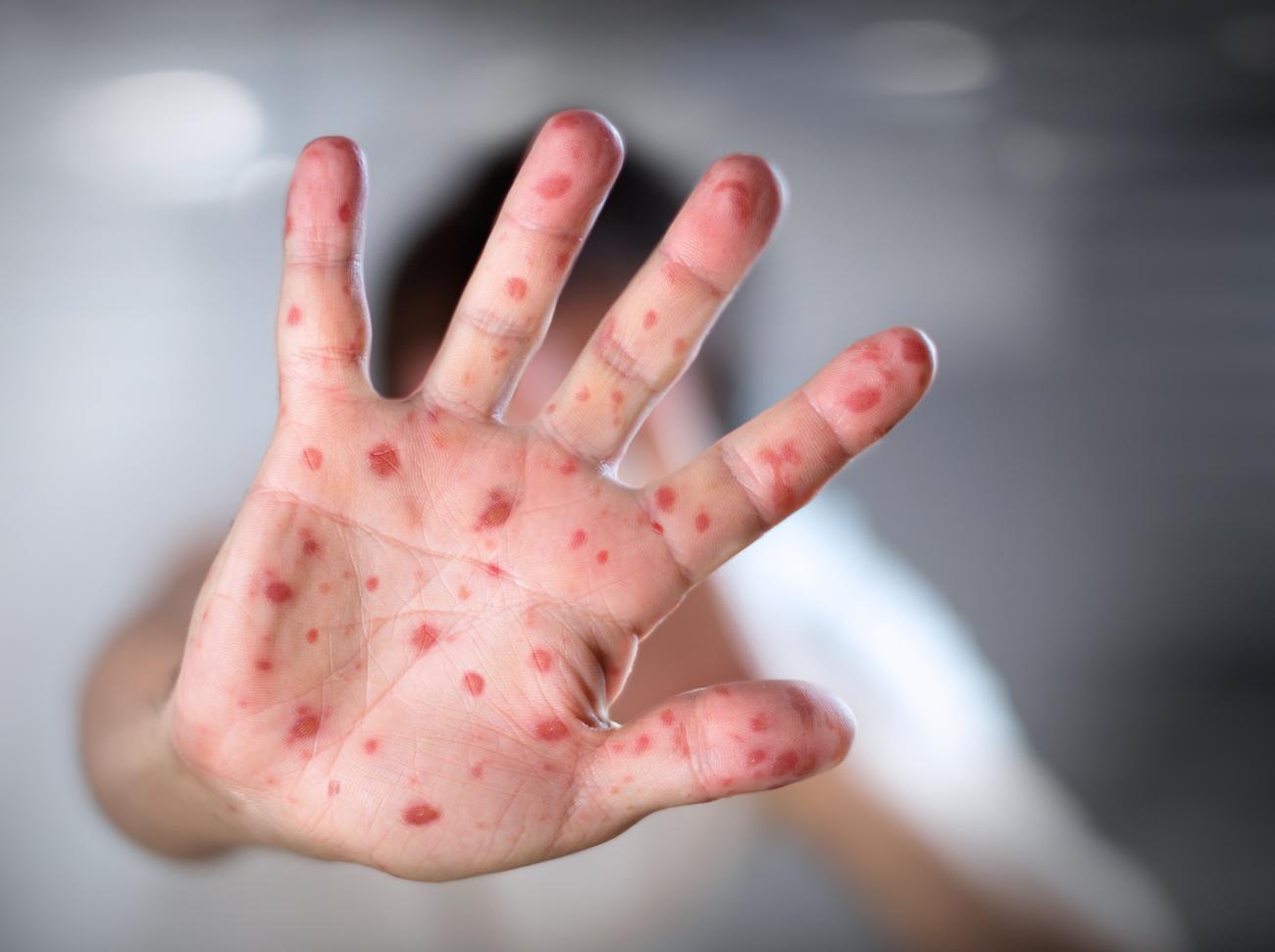
In light of the recent surge of measles cases across the country, our expert shares what preventative measures to take and how to spot symptoms.
A recent rise of measles cases have been reported across Canada, including the first case in B.C. since 2019. Our Vancouver Coastal Health Research Institute researcher Dr. Manish Sadarangani explains how the disease is transmitted, what symptoms to look for and how to avoid contracting it.
Q: What can I do to protect myself and my family from contracting the measles?
A: The most effective and safest way to protect yourself from measles is to ensure that you are fully immunized. This means you have received at least two doses of a measles vaccine. Most people received the measles, mumps and rubella (MMR) vaccine in childhood. In B.C., two doses of the MMR vaccine are administered to children 12 months of age or younger, with a booster shot given between four and six years of age before a child begins elementary school.
Another helpful way to reduce the transmission of the virus is good hand washing. The measles virus is spread through the air by droplets that have been coughed, sneezed or breathed out by an infected person. The virus can survive in these small airborne droplets for several hours. The measles virus is also spread through direct contact with the nose and throat secretions of an infected person.
Q: How do I recognize the symptoms of measles, and what steps should I take if I suspect someone may have been infected?
A: The main symptoms of measles fall under what is termed the “Three Cs,” which include cough, coryza (runny nose) and conjunctivitis (red eyes). Most people will also develop a fever, followed by a rash that begins on around the third day of the illness. The rash usually starts on the face and then spreads to the rest of the body.
Anyone who thinks that they or their children have symptoms of the measles should seek medical attention to confirm the diagnosis. This may be determined in-clinic with a blood test to look for antibodies against the virus or from a throat swab or urine test. It is important to make sure your health care provider knows you are concerned about measles so they can implement the appropriate infection control precautions.
Q: How do I know that the measles vaccine is safe and effective?
A: The vaccine is both extremely safe and highly effective. It has been used globally for decades and is recommended by the World Health Organization (WHO) for routine immunization of all children. Every vaccine used in Canada has been extensively tested in clinical trials and monitored for safety. The most common side effects of the vaccine include local injection site reactions, such as redness, soreness or swelling.
While the effectiveness of the MMR vaccine is almost 100 per cent, not all people are able to get it. This includes anyone who is immunocompromised or pregnant. These individuals should contact their health care provider for specific advice regarding whether they should receive the vaccine.
Q: What other steps can I take to ensure that I am getting reliable information about measles and vaccinations?
A: The WHO Vaccine Safety Net lists approved websites that contain reliable and trustworthy information on vaccines. Included in this list are some B.C. and Canadian resources, such as ImmunizeBC, which is a great resource for health care providers and the general public.
For more technical information aimed at health care providers, I would recommend the BC Centre for Disease Control (BCCDC).
Q: How do I navigate conversations with individuals who may be hesitant or sceptical about vaccination?
A: Most people with vaccine hesitancy have genuine questions and concerns. It is important to listen to and answer their questions accurately and without judgment. Presumptive and motivational interviewing techniques have been shown to be the most effective approaches when having these conversations. It is also helpful to avoid introducing new concerns that they previously did not have.
Time and again, studies have shown that health care providers are the most reliable source of information about vaccines. The Canadian Paediatric Society has great guidance on how to connect parents or guardians who may be hesitant to vaccinate their children with fact-based information on vaccines.



